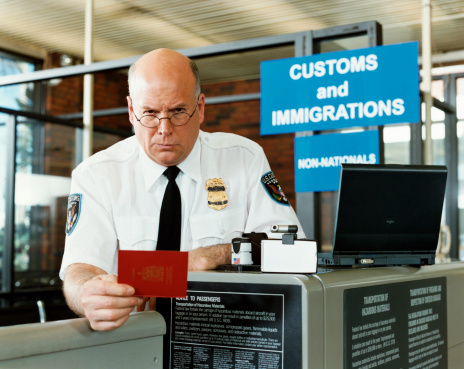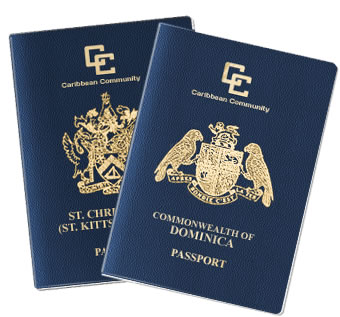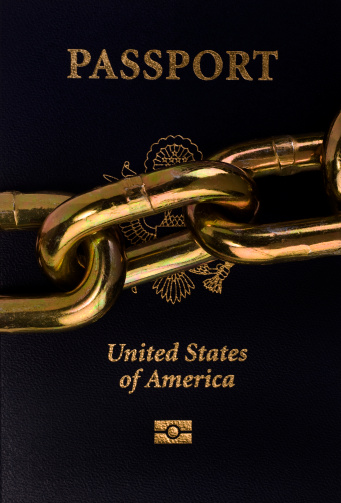IRS Voluntary Disclosure Program Gives Big Breaks to ExPats
IRS Voluntary Disclosure Program is great news for some Expats and dual-nationals
As an ExPat American, you know that you are required to file a U.S. tax return each year and report your foreign bank accounts if you have more than $10,000 offshore. If you have failed to file these forms, and want to get back in to the good graces of the IRS, the IRS Voluntary Disclosure Program may be for you.
Unless you have been living under a rock in Bangladesh, you also know that the IRS has been pushing hard to force disclosure, compliance and payment. The drive for increased revenues started in 2003 when the IRS began investigating offshore credit cards. At that time, it was about compliance. The government had not yet figured out that putting people in jail for tax crimes would generate a lot of news, thus cause many more thousands to come forward, and bring in a truckload of money…and promotions.
In 2008 the U.S. government began its attack on UBS in Switzerland, eventually forcing the Swiss to disclose 4,450 names of U.S. citizens with unreported accounts. The U.S. followed this up by prosecuting a few people in each State or region of the country to ensure maximum news coverage and created the voluntary disclosure program to capitalize on their campaign.
So far, there have been three IRS Voluntary Disclosure Programs allowing people to come forward and voluntarily report their offshore bank accounts. As of June 26, 2012, the IRS brought in over $5 billion in new taxes, interest and penalties.
The third, and current IRS Voluntary Disclosure Program came into effect on September 1, 2012 and has several benefits for what it considers “low-risk” persons. These are U.S. citizens, including dual-citizens, who currently reside overseas, who owe little or no U.S. taxes. The objective is to convince these people to report the value and locations of their money and assets in exchange for not being hit with excessive civil penalties.
These low-risk persons will be able to file three years of delinquent U.S. tax returns (including required information reporting forms) and six years of FBARs without the imposition of program penalties. Whether a taxpayer is “low-risk” will depend on a number of factors, but will primarily require that the tax due is less than US$1,500 for each of the covered years, that the person was living and working outside of the U.S. during these years, and that the person did not take steps to conceal their income from the U.S.
It should be noted that this procedure will provide no protection from the risk of criminal prosecution. The IRS website indicates the following regarding criminal prosecution: “The IRS Voluntary Disclosure Program has a longstanding practice of IRS Criminal Investigation whereby CI takes timely, accurate, and complete voluntary disclosures into account in deciding whether to recommend to the Department of Justice that a taxpayer be criminally prosecuted. It enables noncompliant taxpayers to resolve their tax liabilities and minimize their chance of criminal prosecution. When a taxpayer truthfully, timely, and completely complies with all provisions of the voluntary disclosure practice, the IRS will not recommend criminal prosecution to the Department of Justice.”
Because the tax due amount within the IRS Voluntary Disclosure Program takes the Foreign Earned Income Exclusion and Foreign Tax Credit in to consideration, most Expats and foreign residents will qualify as low risk. For example, anyone who is employed in a high tax country (a country with a tax rate equal to or greater than the U.S.), should be in the clear, as will most people earning less than $80,000 to $95,000 per year who are living in a low tax country. Those at risk are entrepreneurs living in low tax countries, high net worth individuals with significant untaxed capital gains or passive income, and just about any self-employed person who was not operating through a foreign corporation and is thus subject to self-employment tax.
There are two groups of ExPats that are excluded from this IRS Voluntary Disclosure Program: 1) if your account is at a bank that is currently under investigation by the U.S., you may not be eligible, and 2) if you attempt to fight the release of your banking information from your foreign bank, you will not be eligible for this program. For example, if the U.S. issues a summons to Bank ABC in Lichtenstein requesting all U.S. accounts, and you fight the request, you are disqualified from this program.
In addition, the IRS may announce that certain groups of taxpayers that have or had accounts at specific offshore banks will be ineligible to participate in the IRS Voluntary Disclosure Program due to pending US government actions in connection with those specific institutions. Details regarding eligibility or ineligibility of specific taxpayer groups connected to such institutions will be posted to the IRS website.
The IRS says: “US persons with undeclared bank accounts are reminded that the 2012 IRS Voluntary Disclosure Program gives taxpayers with unreported foreign bank accounts a chance to come clean while mitigating the risk of criminal prosecution, and that they should consider remedying any past non-compliance with their US tax and information reporting obligations while there is still an opportunity to do so.”
If you are a U.S. citizen who has been living and working abroad, and are willing to disclose your accounts and assets, now is the best time to evaluate your rights.
I recommend the following three step plan of action:
- discuss your situation with a qualified tax attorney to evaluate your risks of criminal prosecution,
- have your attorney prepare U.S. tax returns to determine the amount of taxes due, and
- if you qualify as a low-risk citizen, join the voluntary disclosure program program as soon as possible and before your bank comes under attack or you are disqualified for another reason.
If you do not qualify as a low-risk taxpayer, you may still participate in the current IRS Voluntary Disclosure Program. However, you will be subject to substantial taxes and program penalties, which are more severe than those levied by previous initiatives.
In addition to the standard tax, interest and penalties associated with your delinquent returns, the following penalties will be assessed, and must be paid or you will be disqualified from the program:
- 20% accuracy-related penalties on the full amount of your offshore-related underpayments of tax for all years;
- Pay failure to file penalties, which are up to 25% of the unpaid tax, if applicable;
- Pay failure to pay penalties, which are up to 25% of the unpaid tax, if applicable;
- Pay, in lieu of all other penalties that may apply to your undisclosed foreign assets and entities, including FBAR and offshore-related information return penalties and tax liabilities for years prior to the voluntary disclosure period, a penalty equal to 27.5% (or in limited cases 12.5% or 5%) of the highest aggregate balance in foreign bank accounts/entities or value of foreign assets during the period covered by the voluntary disclosure;
Note that this penalty includes the value of all foreign assets, including real estate.
As you can see, the penalties are very severe if you do not qualify as a low-risk taxpayer. However, getting back in to the system and removing the risk of criminal prosecution will motivate many to come forward, pay up, and sleep better at night knowing that Uncle Sam will not come knocking…not yet, anyway.
If you have unreported accounts or questions about your U.S. Expat taxes, please contact me for for a free and confidential consultation regarding the IRS Voluntary Disclosure Program. I can be reached at (619) 483-1708, or info@premieroffshore.com.



















